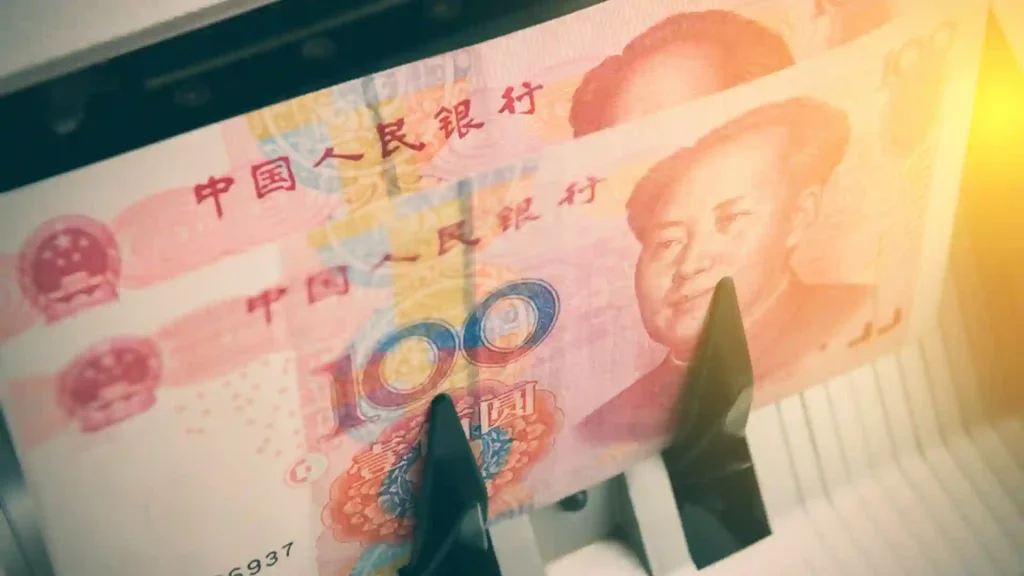Saudi Arabia is the world’s second-largest oil producer and biggest oil exporter, with a huge influence on the global oil supply and international oil prices, whereas China is the world’s largest energy consumer
The Saudi Central Bank (SAMA) and People’s Bank of China (PBOC) have signed a written agreement for a three-year domestic currency swap for the value of 50 billion yuan ($6.93 billion) or 26 billion Saudi riyals.
Currency swap agreements are financial collaborations between two countries for the exchange of local currencies at a fixed exchange rate and a fixed amount.
This currency agreement between the central banks of Saudi Arabia and China is aimed at improving bilateral trade in their local currencies, yuan, and riyal. This is also a counter to the dollar hegemony in the global oil supply chain.
SAMA said in a statement that this multi-year agreement has been curated for the financial collaboration between the Saudi Central Bank and the People’s Bank of China. The statement also mentioned that this swap agreement could be extended beyond the fixed three years.
Saudi Arabia is the world’s second-largest oil producer and biggest oil exporter, with a huge influence on the global oil supply and international oil prices, whereas China is the world’s largest energy consumer. Both the leaders in opposite arenas have built a trustworthy relationship for years and have forayed into other partnerships in sectors like technology and security.
As per the records published by the Chinese customs data, China imported $65 billion worth of crude from the Saudi Kingdom last year. This amounts to about 83% of Saudi’s exports to the Asian expansionist power. The Kingdom imported goods and services worth 11.8 billion Saudi riyals last year.
Ayman bin Mohammed Al-Sayari, Governor of SAMA, said that this mutually extendable agreement will form the base for strengthening the relationship between the two central banks. He said that SAMA was looking at other forms of partnership with PBOC, like partnerships in international organisations and multilateral forums.
China is expected to have the world’s largest network of currency swap agreements with over 40 countries. The intricacies of those agreements are yet unknown.
The agreement signed with PBOC is the 30th swap signed by PBOC over the course of the last 10 years. This was possible due to the worldwide usage of the yuan. PBOC has signed agreements with Saudi neighbours as well, the United Arab Emirates in 2012, Qatar in 2014, and Egypt in 2016.
Xi Jinping, the Chinese President, told his Arab counterparts last December that he is open to purchasing oil and gas in yuan, but to date, the yuan hasn’t been used for a single shipment.
Weitseng Chen, an associate professor at the National University of Singapore, said that China is using swap agreements differently than the United States. It is developing these lines as an alternative during times of financial mayhem.
In October, Argentina activated its swap line with China for the second time in the past three years, worth $6.5 billion. It is facing a skyrocketing inflation of 130%, with its dollar reserves going to negative levels. They expect the line to help them solve the issue of vanishing foreign currency reserves.
The currency swap is also pivotal for the Kingdom’s central bank to boost domestic investments to support the Saudi Vision 2030, which is aimed at reducing the Kingdom’s reliance on crude revenue and diversifying its economy.
In September, Saudi Arabia and China signed a memorandum of understanding (MoU) to exchange expertise in modern transport software systems like technologies for building better roads, humanless driven cars, and also improving shipping lines and operations of ports.
Saudi Arabia was granted the Approved Destination Status by China to improve the tourism relationship between them. This will allow Chinese travelers to visit the Kingdom on group trips. This will foster both connectivity and open opportunities in the tourism sector.
